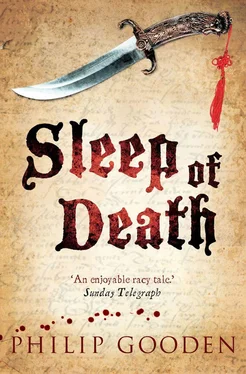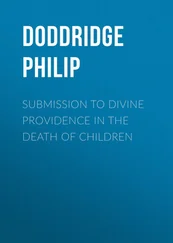Philip Gooden - Sleep of Death
Здесь есть возможность читать онлайн «Philip Gooden - Sleep of Death» весь текст электронной книги совершенно бесплатно (целиком полную версию без сокращений). В некоторых случаях можно слушать аудио, скачать через торрент в формате fb2 и присутствует краткое содержание. Год выпуска: 0101, ISBN: 0101, Издательство: Constable & Robinson, Жанр: Исторический детектив, на английском языке. Описание произведения, (предисловие) а так же отзывы посетителей доступны на портале библиотеки ЛибКат.
- Название:Sleep of Death
- Автор:
- Издательство:Constable & Robinson
- Жанр:
- Год:0101
- ISBN:9781472104311
- Рейтинг книги:5 / 5. Голосов: 1
-
Избранное:Добавить в избранное
- Отзывы:
-
Ваша оценка:
- 100
- 1
- 2
- 3
- 4
- 5
Sleep of Death: краткое содержание, описание и аннотация
Предлагаем к чтению аннотацию, описание, краткое содержание или предисловие (зависит от того, что написал сам автор книги «Sleep of Death»). Если вы не нашли необходимую информацию о книге — напишите в комментариях, мы постараемся отыскать её.
Sleep of Death — читать онлайн бесплатно полную книгу (весь текст) целиком
Ниже представлен текст книги, разбитый по страницам. Система сохранения места последней прочитанной страницы, позволяет с удобством читать онлайн бесплатно книгу «Sleep of Death», без необходимости каждый раз заново искать на чём Вы остановились. Поставьте закладку, и сможете в любой момент перейти на страницу, на которой закончили чтение.
Интервал:
Закладка:
N: Describe the scene, if you would.
F: My eyes were now much sharper and I could see almost as well as by day. Above me was a moon, new-risen and near full, and the evening star was balanced on a wall top. Between two trees was a hammock, and in the hammock was my master. He was only a shape, but who else could it be?
N: You realised he was dead?
F: Death and sleep are brothers — that’s what they say, isn’t it, sir? But to my mind you cannot confuse those two, however much they be kin. I knew that he was dead the moment I saw him there between the apple trees. He had not answered for all of our calling. And his poor body had heaviness and no heaviness, if you understand me.
N: I think so. What did you do next?
F: I was silent. The hammock swayed and creaked in some of the air that came creeping up and across the wall from the river, and for a moment I thought that Sir William was going to stretch and rise up from his resting place and greet me by name as he did sometimes, and the hair stood up on the back of my neck. I waited to see. But he did not rise. He had gone from us for good. Lady Alice, she cried out ‘Francis!’ in a way that brought me back to myself. I crept closer, not frightened now but respectful, like. I touched him gently on his forehead with the tips of my fingers, like so [ Francis extends surprisingly delicate fingertips ], and he was scarcely warm.
N: How was he lying?
F: On his back but with his head to the left side, so, and one arm outflung. I could not see his expression but when they brought him into the house we saw a horrible grin on his face as if he laughed at all of us. The key fell from his person and onto the floor inside. It made a clatter.
N: What key?
F: The key to the door to the garden.
N: Let us go back to when you first found him. What did you think at that moment? About how he’d died for instance?
F: I didn’t think anything, Master Revill. I was frightened, then I was excited, if you’ll forgive me for saying so. It had fallen to me, you see, to make a discovery which would make a difference to everyone in our household. Later I was sorry, because Sir William was a good master. We shall not see his like again.
N: And then?
F: I shouted out something. I cannot recall what it was. I went back to the door. The others were still on the far side. I was very calm and also lively. I could hear them breathing over the wall. I said that I had found Sir William and that torches should be brought, and they knew what I meant, and then they broke down the door and came inside, and everyone went and stood about the body wringing their hands, and Janet ran all over the house beside herself, and my lady Alice and us servants, we were grief-stricken.
N: And Master William?
F: Him most of all.
N: And that was it? You saw nothing further? You did nothing else? You didn’t touch the body, or rearrange anything before the others came into the garden?
F [ hesitating ]: No, sir.
N: And one more thing, Francis, if you would be so good.
F: Sir?
N: Sir Thomas Eliot, where was he all this while?
F: Sir Thomas?
N: Your old master’s brother and now your new master.
F: He was about his business.
N: Where? Here in the house?
F: Oh no, I do not think so. He was away, in Dover, I think.
N: So when did he find out about the death of his brother?
F: The next day it must have been, sir. When he returned from Dover. My lady went to tell him as he came into the hall, but in truth he must have been able to tell something was wrong. Tom Bullock would have said as he arrived.
N: Tom Bullock?
F: He is the doorman. He says little, but even he could not keep his mouth closed around this.
N: Was Sir Thomas often here?
F: He dwells in Richmond. No longer of course. Now he dwells here with my lady.
N: But, before your old master died, he was often here?
F: I dare say so, Master Revill.
N: Out of love for his brother and sister?
F: It is said-
N: Yes?
F: — that he was near to bankrupt before this marriage.
N: Thank you, Francis. And still one thing more. Can I ask you again about the moment when you saw Sir William?
F: Again, sir?
N [ sensing that even this simple man’s patience is about to be exhausted ]: For my own private satisfaction. You touched nothing about Sir William’s person in the garden?
F: I — no. .
N: Well, I thank you, Francis.
[ Nick Revill makes to turn away, knowing that Francis has more to say on this topic and that a pretended dismissal, and an active conscience, will work best on this good servant. ]
F: Wait a moment, sir. You set me thinking now. I went close to the body and, like I said, I knew that he was dead straightaway, even before I put my fingertips out. His head was on one side and. .
N: Yes?
F: It’s a tiny thing, sir. But on the side of his face turned towards me there was a mark that ran aslant his cheek.
N: How did you see this? It must have been dark by this stage.
F: Like I said, my eyes had grown used to the dark, and there was a strong moon nearly at the full. The moonlight caught this. . trail. . as it will pick out the trail of a boat on the river. It was like a snail’s trail, a silver track that stretched from his ear and down across the cheek before it disappeared in his beard. I. . I wiped at the mark with my sleeve, sir, because I did not like to think that something had crawled across the face of my dead master. I had almost forgot it until this instant. Did I do wrong?
N: No, Francis. You showed respect towards your master. The sleeve you used to wipe Sir William’s cheek, would that happen to be the one on the shirt you’re wearing?
F: I keep it in my trunk beneath my bed. I have two shirts, and I have not worn that one since the night of the discovery. And if you were to ask me why, sir, I could not tell you.
We’d landed on the south bank by now. I paid off the boatman, adding a small tip, and was rewarded with a surly nod. Can you ever satisfy a boatman? Will Charon, who is to ferry us all across Lethe one day, be as bad-tempered as a London waterman? Impossible!
As I made my way up the landing steps and into Hopton Street on the way to the playhouse, I considered again what I had discovered. I must confess that the feeling that there was indeed something to find out — the feeling that this wasn’t all a matter of a son’s grieving imagination — had grown strongly upon me. William Eliot was convinced of something odd, even suspicious about his father’s death. Now I was starting to believe the same thing. Even so quickly may one catch the plague! After talking with Francis and summarising our exchange in my little black book, I had noted (in my Greekified style) the following points for further reflection:
firstly : Why were the family, Lady Alice and William, so sure that Sir William was in the garden, that he hadn’t, for example, slipped away from the house? One of the servants, Janet, had witnessed him entering the garden, to be sure, and no one had seen him leave — and his outdoor clothes were in place — but it seemed an absolute certainty with them that he was on the premises. Did this suggest that somebody knew he was there?
secondly : What did Lady Alice mean when she called out to Francis, “Have you found him?” Why had she made that choice of words? Why not “Is he there, Francis?” or “Can you see him?” Lady Alice’s query is what we call out to one who is searching for some thing or object — or for one who is no longer able to answer for himself.
thirdly : What caused the silvery streak which Francis had observed running slantwise across the cheek of the dead man? A snail or some other tiny creature? It was possible. I could understand why he had wiped it off his master’s face. I could understand too why the servant had been reluctant to wear that same shirt again — although this, as well as the way he had described his action at the very end of our meeting, suggested that, rather than merely forgetting the incident as he had claimed, Francis had deliberately thrown earth over it in his mind. Why? Had he, by instinct or unawares, been frightened of something in that sticky track scrawled across the dead man’s face?
Читать дальшеИнтервал:
Закладка:
Похожие книги на «Sleep of Death»
Представляем Вашему вниманию похожие книги на «Sleep of Death» списком для выбора. Мы отобрали схожую по названию и смыслу литературу в надежде предоставить читателям больше вариантов отыскать новые, интересные, ещё непрочитанные произведения.
Обсуждение, отзывы о книге «Sleep of Death» и просто собственные мнения читателей. Оставьте ваши комментарии, напишите, что Вы думаете о произведении, его смысле или главных героях. Укажите что конкретно понравилось, а что нет, и почему Вы так считаете.












